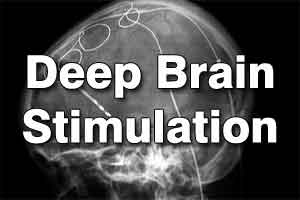- Home
- Editorial
- News
- Practice Guidelines
- Anesthesiology Guidelines
- Cancer Guidelines
- Cardiac Sciences Guidelines
- Critical Care Guidelines
- Dentistry Guidelines
- Dermatology Guidelines
- Diabetes and Endo Guidelines
- Diagnostics Guidelines
- ENT Guidelines
- Featured Practice Guidelines
- Gastroenterology Guidelines
- Geriatrics Guidelines
- Medicine Guidelines
- Nephrology Guidelines
- Neurosciences Guidelines
- Obs and Gynae Guidelines
- Ophthalmology Guidelines
- Orthopaedics Guidelines
- Paediatrics Guidelines
- Psychiatry Guidelines
- Pulmonology Guidelines
- Radiology Guidelines
- Surgery Guidelines
- Urology Guidelines
Deep Brain Stimulation approved for Refractory Epilepsy

Deep brain stimulation (DBS) therapy, a surgically implanted medical device, has been granted premarket approval by the U.S. Food and Drug Administration (FDA). DBS is used as an adjunctive treatment for reduction of partial-onset seizures frequency in refractory epileptic patients. This was announced by medical equipment company and DBS manufacturer Medtronic.
DBS is a neurosurgical procedure that involves the implantation of neurostimulator, a medical device, through which electrical impulses are sent to specific targets in the brain via implanted electrodes. It is used for the management of movement and neuropsychiatric disorders. It was approved by FDA as a treatment for Parkinson's disease (PD) and essential tremor in 1997, dystonia in 2003, and obsessive-compulsive disorder (OCD) in 2009.
This approval is beneficial for the patients with severe epilepsy who are not able to control their seizures with currently-available drugs and are not candidates for potentially curative surgery.
"Epilepsy that is refractory to AED treatment is an unsolved problem, and DBS therapy will now serve as an important new treatment option, including for people with poorly localized or multiple regions of seizure origin," principal investigator, Robert Fisher, director of the Stanford Epilepsy Center, Stanford University in California, said in a release.
The approval is specifically for bilateral anterior thalamic nucleus stimulation and is based on the results obtained from SANTE study (Stimulation of the Anterior Nucleus of the Thalamus in Epilepsy). This was a randomized, double-blind study that enrolled about 110 individuals who were implanted with the Medtronic DBS system and had a 7-year open-label follow up.
Results showed that at 3 months, the total median seizure frequency reduction was 40.4% vs 14.5% for the DBS and placebo groups from baseline, respectively. At 7 years, the total median seizure frequency reduction was 75% with open-label ongoing therapy. In addition, 18% (n=20) of patients experienced at least one 6-month period in which they were seizure free between the time of implant and Year 7, and 7% (n=8) of these patients were seizure-free for the previous 2 years.
Quality of life and seizure severity were statistically significantly improved from baseline at Year 7. Moreover, no significant worsening of cognitive or depression scores was seen through the blinded phase or at Year 7; improvements in measures of executive function and attention were noted at the 7-year point.
Adverse events (AE) were assessed for 2 years following device implantation. The most common AEs were paresthesia, implant site pain, and implant site infection.

Disclaimer: This site is primarily intended for healthcare professionals. Any content/information on this website does not replace the advice of medical and/or health professionals and should not be construed as medical/diagnostic advice/endorsement or prescription. Use of this site is subject to our terms of use, privacy policy, advertisement policy. © 2020 Minerva Medical Treatment Pvt Ltd